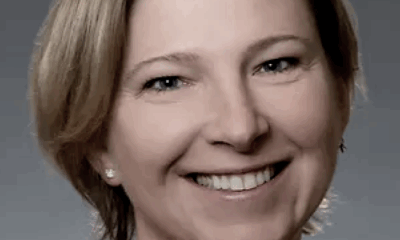Facing a backlash from audit firms over its proposal to toughen the standards for failing to detect noncompliance with laws and regulations, the Public Company Accounting Oversight Board has decided to delay action on the standard this year.
The PCAOB proposed the so-called NOCLAR standard in June, with the goal of strengthening its requirements for auditors to identify, evaluate and communicate possible or actual noncompliance with laws and regulations, including fraud. However, the proposed standard provoked resistance from a number of auditing firms and state CPA societies like the Pennsylvania Institute of CPAs and spurred a comment letter-writing campaign organized by the Center for Audit Quality and the U.S. Chamber of Commerce that was supported by prominent business trade groups like the American Bankers Association, the Business Roundtable, the Retail Industry Leaders Association and more.
Earlier this week, the PCAOB issued staff guidance outlining the existing responsibilities of auditors to detect, evaluate and communicate about illegal acts. The PCAOB was slated to finalize the NOCLAR standard by the end of this year, but after the election it has put the standard on hold for now, anticipating the upcoming change in the administration in Washington, D.C.
“Following the recent issuance of staff guidance, the PCAOB will not take additional action on NOCLAR this year,” said a PCAOB spokesperson. “We will continue engaging with stakeholders, including the SEC, as we determine potential next steps. As our process has demonstrated, the PCAOB is committed to listening to all stakeholders and getting it right.”
One reason for the change of plans is that the PCAOB anticipates changes in the regulatory environment under the Trump administration, especially in the Securities and Exchange Commission, which would have to approve the final standard before it could be adopted. The Trump administration is likely to replace SEC chairman Gary Gensler, who has spearheaded many of the increased regulatory efforts at the Commission and encouraged the PCAOB to update its older standards and take a tougher stance on enforcement and inspections. President-elect Trump, in contrast, has promised to eliminate regulations, and Gensler’s push for increased regulation has attracted the ire of many in the financial industry.
According to a person familiar with the PCAOB process, no further action is expected until further consultation with the SEC under the incoming administration can take place.
Questions have arisen over whether the PCAOB might decide to repropose the standard with modifications given the amount of opposition it has attracted. That is to be determined pending review of the comment letters that have been received, as well as a roundtable from earlier this year, along with responses from targeted inquiries from firms in their approach relating to NOCLAR.
PCAOB board members Christina Ho and George Botic were asked about the NOCLAR proposal on Wednesday at Financial Executives International’s Current Financial Reporting Insights Conference, and Ho acknowledged the pushback.
“We’ve heard strong opposition from the auditing profession, public companies, audit committees, investors, academics and others,” said Ho. “The PCAOB has received 189 individualized comments to date on that proposal. This proposal now has the third highest number of comment letters in the history of PCAOB. That did get a lot of attention. Commenters overwhelmingly called for a reproposal or withdrawal of the proposed standard so that that is definitely something that I am looking at a lot, and I also voted against the proposal. I have spoken to various stakeholders, including investors, audit committee chairs and members, and some preparers as well. The question I got asked repeatedly was, what problem is PCAOB trying to solve? And the people I spoke to believe that there have been improvements in financial reporting quality over the past 20 years, and that obviously is consistent with the CAQ study noting a consistent decline in restatements. While there’s always room for improvement, they noted that a balance is necessary between increased investor protection and increased auditor implementation costs that are ultimately passed on to issuers, and that the NOCLAR proposal lacks such a balance. That is what I have heard from the comment letters, so that pretty much summarizes what I have seen, and I’m still obviously thinking about it.”
Botic noted that the proposal came before he joined the board, but he referred to the staff guidance that had been issued earlier in the week by the PCAOB on the existing requirements.
Last week, the PCAOB updated its standard-setting and rulemaking agendas before the outcome of the election was known. Now with the uncertainty over the regulatory environment, the PCAOB is mindful of the difficulty of having the SEC decide on whether to approve it, especially if the five-member commission becomes evenly split among two Republican members and the two Democrats if Gensler departs or is ousted. The PCAOB feels the SEC needs adequate time to review and educate itself on the proposed standard, rather than having to jam it through a two-two commission, especially with the amount of engagement that will need to take place given such an important standard, according to a person familiar with the matter.
The PCAOB expects it to remain on the docket for 2025 but doesn’t want to try to jam it through this year. However, the PCAOB announced Friday that it has scheduled an open board meeting next Thursday, Nov. 21, on another proposed standard on firm and engagement metrics, which has also provoked pushback from many commenters, but is still slated to be finalized this year.


 Blog Post7 days ago
Blog Post7 days ago
 Economics1 week ago
Economics1 week ago
 Finance1 week ago
Finance1 week ago
 Economics1 week ago
Economics1 week ago
 Economics1 week ago
Economics1 week ago
 Finance1 week ago
Finance1 week ago
 Personal Finance1 week ago
Personal Finance1 week ago
 Accounting1 week ago
Accounting1 week ago













